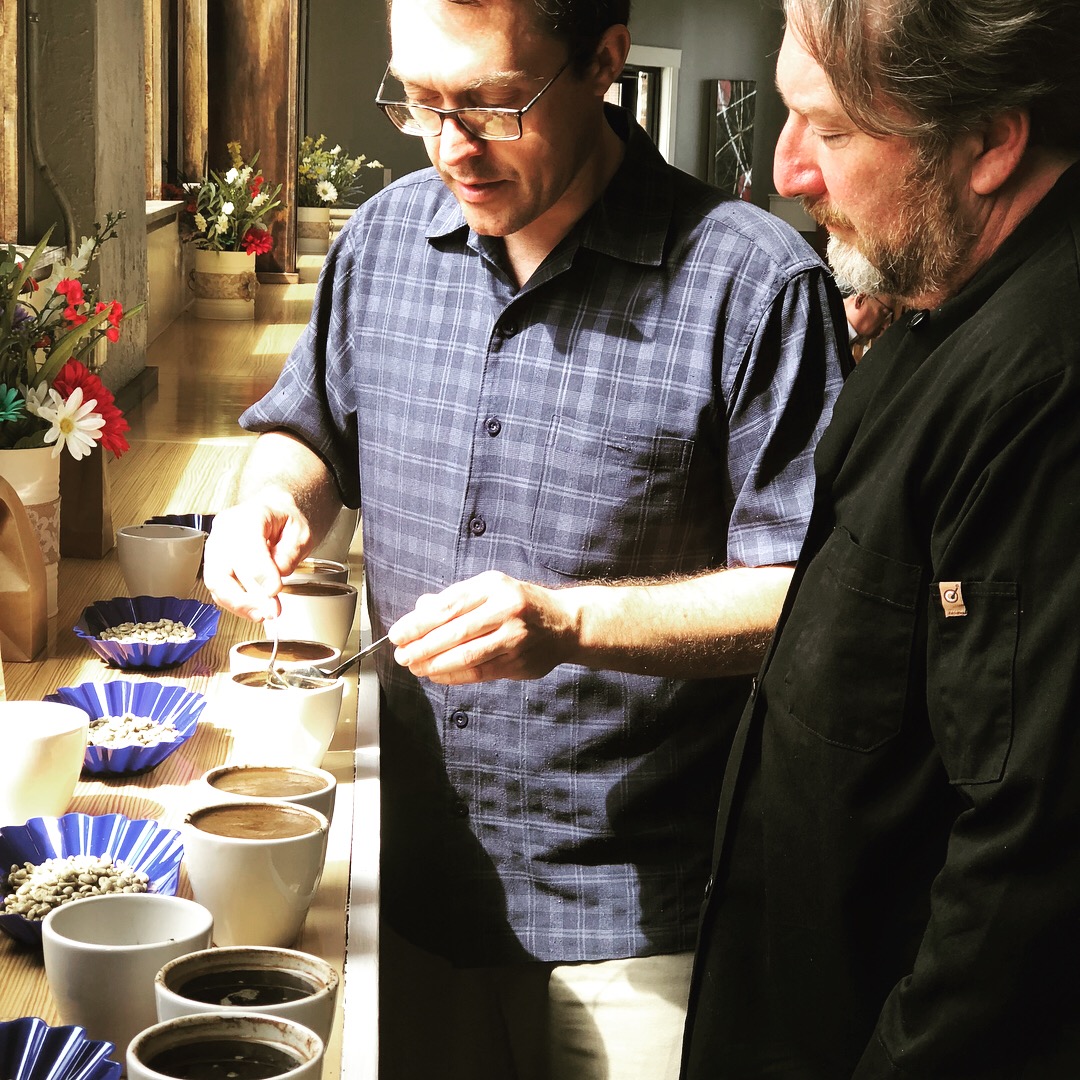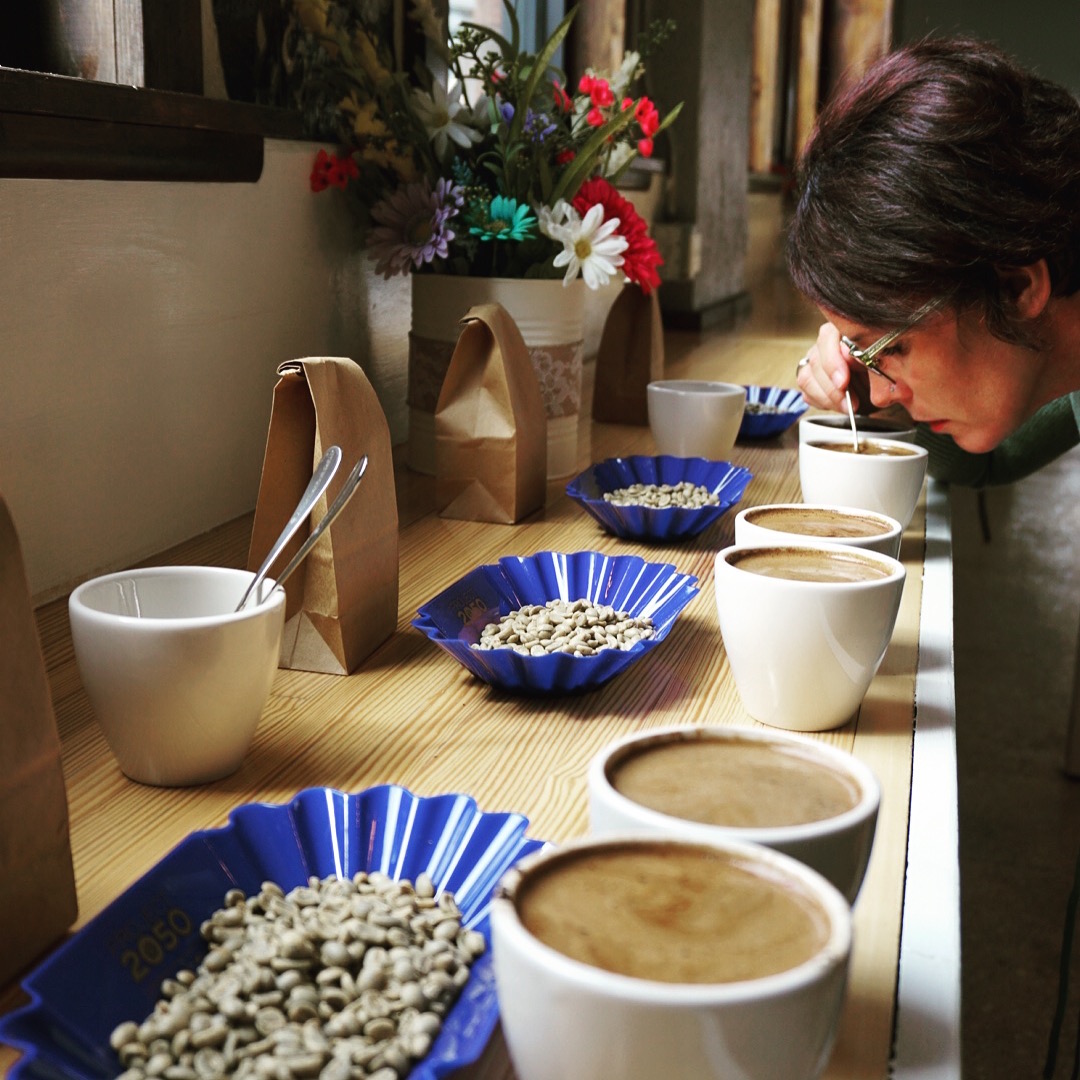In the United States, the proliferation of commercial co-roasting spaces with legit equipment, adequate production and storage space, green coffee sourcing opportunities and knowledgeable staff has largely taken place on the East and West Coasts.
Pulley Collective (Brooklyn), Buckman Coffee Factory (Portland, Oregon), and Bay Area CoRoasters (Berkeley, California), are all contemporary examples of such places, offering up-and-coming small roasters affordable access otherwise prohibitively expensive facilities and resources.
But what happens when one of these exists smack dab in the middle of the United States?
Longtime roaster and coffee sourcing professional Jon Ferguson, for one, believes the demand for roasting spaces among upstart roasting companies, along with a general uptick in collaborative economy throughout many industries, make it high time for a shared roasting facility in his current home city of Lincoln, Nebraska.
Made possible in part through a space-sharing arrangement with Lincoln cafe Chez Sodo and its owners Starr and Sean Carmichael, the new co-roasting enterprise will be called Proof of Coffee, and Feguson is currently in the midst of a Kickstarter campaign to help outfit the facility.
Ferguson told DCN he expects the space to open for business as early as next month, offering roasters hourly rates for production roasting, coffee classes, packaging equipment and a range of quality-control equipment. Proof of Coffee will also give established or up-and-coming roasters access to the public through cupping events, retail displays and other programming designed to nourish a more educated and engaged coffee community.
“This is about discovery, experience, and learning,” said Ferguson, who after working in coffee in Seattle founded Cultiva Coffee in Lincoln in 2007 before selling the company and occupying various roasting, sourcing and quality-control roles at coffee companies such as Dogwood Coffee (Minneapolis) and The Roasterie (Kansas City). Given Ferguson’s current, ongoing role as a coffee specialist at the Arbor Day Foundation, Ferguson said he’ll be devoting some nights and weekends to Proof of Coffee, while also arranging a volunteer team of like-minded coffee professionals and tasters.
“At its core, the space will not be intended to focus on the support or success of [any] individual owner,” Ferguson recently told DCN. “The purpose will be to support the interests of those wanting to learn, create, and sell roasted coffees, and to foster competitive spirits to add to a healthy growth of coffee culture within our community.”
With its own population being nearly half the size of Portland’s, and with the bigger city of Omaha roughly an hour’s drive away, Lincoln’s potential coffee community is actually quite a bit larger than many people may assume. Ferguson mentioned roasters and retailers throughout both those cities as having already set a high standard for how good specialty coffee can be locally. The names he dropped included Hardy, Rally, Amateur and Archetype in Omaha, as well as The Bay, Meta Coffee Lab, and Vena Amoris in Lincoln, among others.
Within Proof of Coffee, Ferguson plans to have a San Franciscan SF-6 and a Diedrich IR-3 as the production roasters, while there will be various other tools and supplies for grinding, cupping and packaging. A small amount of green inventory will be on hand, and Proof of Coffee hopes to offer additional green buying opportunities.
“Buying just one full bag of raw green coffee can cost around $500, which is a lot of capital to invest for most nano-sized roasters,” he said. “Currently there are several vendors who offer to sell split bags or smaller quantities, but typically at an extra cost. With the power of cupping and selecting coffee lots together, we will be able to buy coffees at a more competitive rate.”
Ferguson said he also plans to offer monthly classes on evenings or weekends, when time allows. “I will see my return on this investment through class enrollments and some roasted coffee sales, but I will remain dedicated to my role at the Arbor Day Foundation, which keeps me plenty busy but will also be a great asset for this space, specifically regarding access to affordable green coffee inventory.”
The Proof of Coffee name is a play on words inspired by the idea that aspiring commercial coffee roasters are wise to prove to themselves that their coffees and the profession itself are viable over the long haul.
“There’s nothing better than learning by actually sitting at the roaster, adjusting air or gas,” Ferguson said. “You can read about roasting all day, but not until you spend time with a commercial roaster will you feel fully comfortable with roasting coffee on a larger scale.”
Nick Brown
Nick Brown is the editor of Daily Coffee News by Roast Magazine.
Comment
1 Comment
Comments are closed.









We were at the classes on the 15th, Mike picked out the $100 coffee, and there was a great time had by all. We have already changed how we make coffee. John was going to email the directions to use the French press and all the other coffee vessels but I haven’t gotten it. Is there a way?
The class was very informative and we will want to Persue the roasting class and continue to receive communication. I strongly suggest taking his classes.